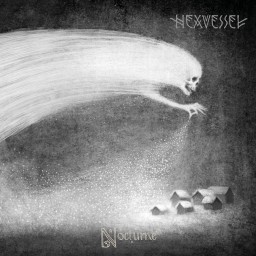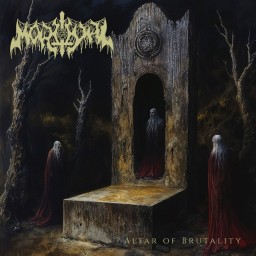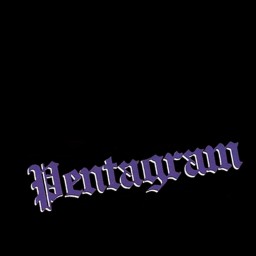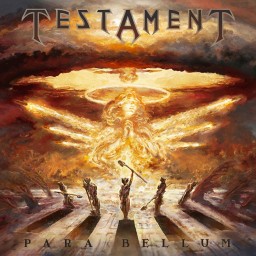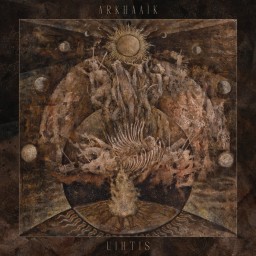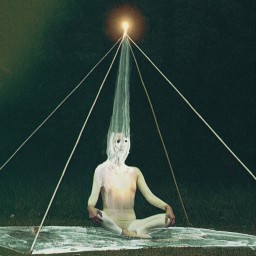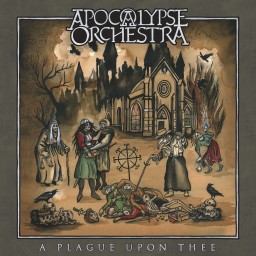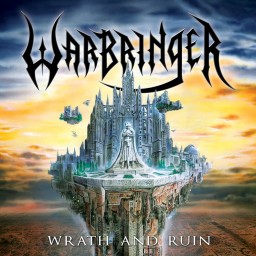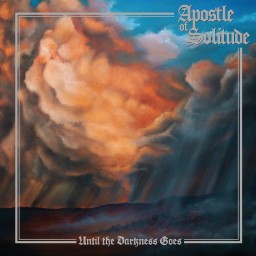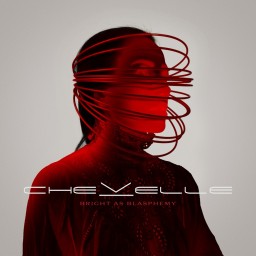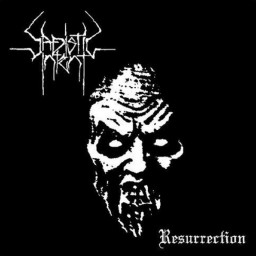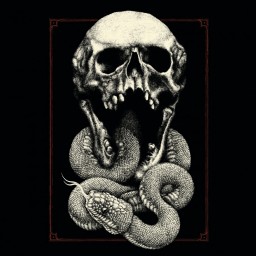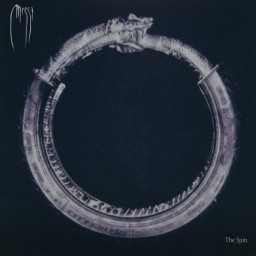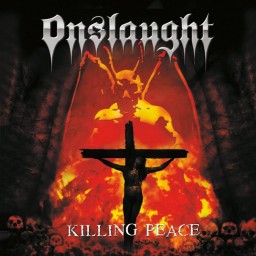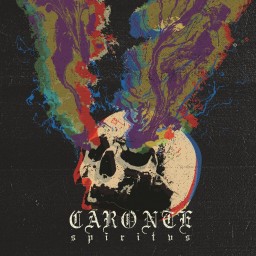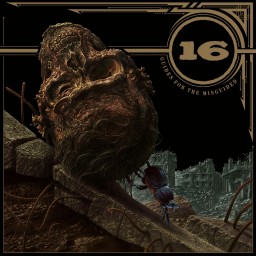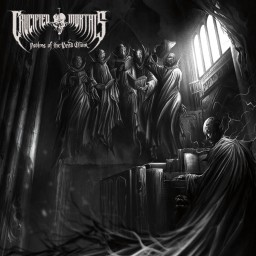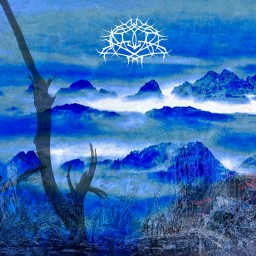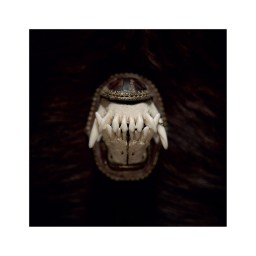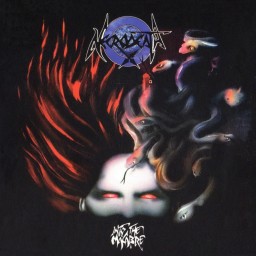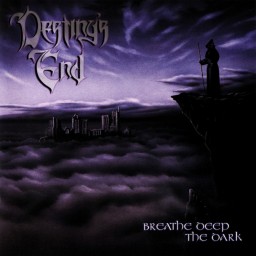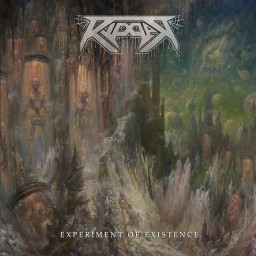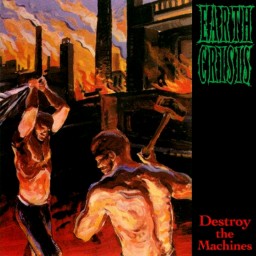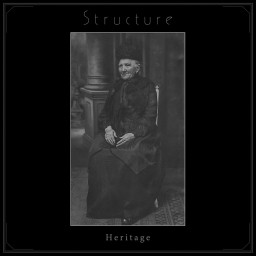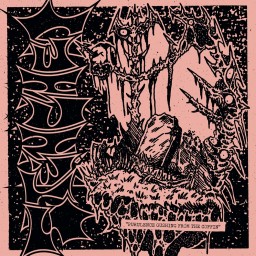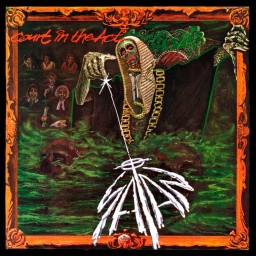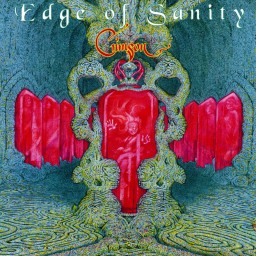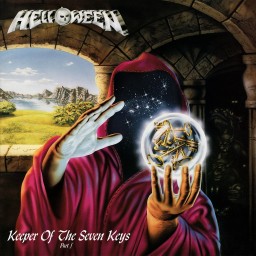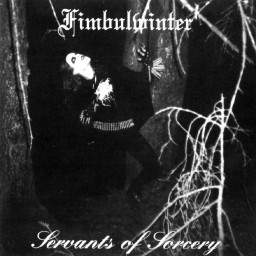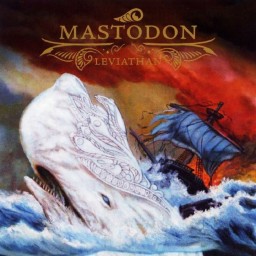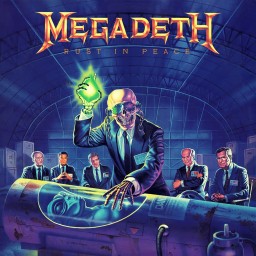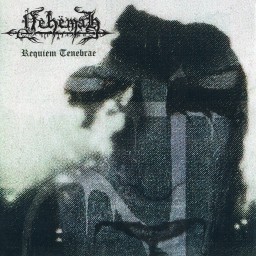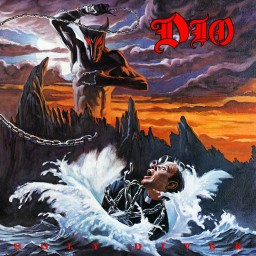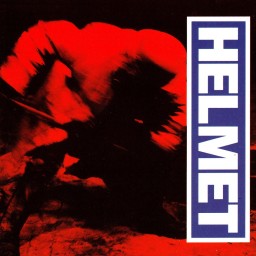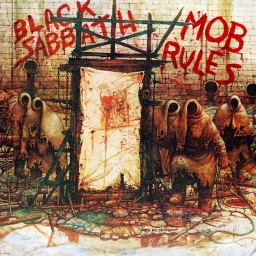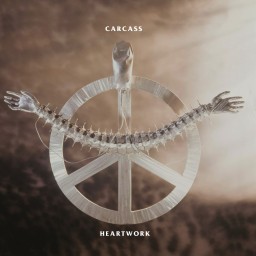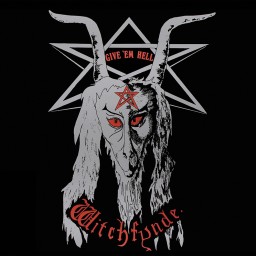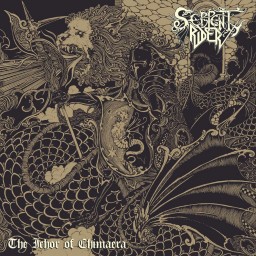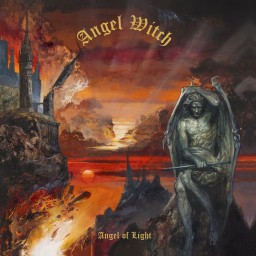Sonny's Reviews
I have only really been interested in drone metal for about a decade now and only started exploring it in earnest two or three years ago, but it has become one of my favourite genres and a lot of my highest scores of recent times have gone to drone metal releases. I guess that because I am quite an anxious person by nature, I find the monolithic droning of this style of metal to be inherently calming. Bong are a new name to me, despite them having been around for close to twenty years now and hailing from these British Isles I call home. They are prolific releasers of material with nine studio albums, a plethora of splits and EPs and thirty-plus live albums.
Mana-Yood-Sushai is the four-piece's third album, released in 2012, and is a sublime mix of drone metal and psychedelia that gives it a heavy eastern, mystical flavour, a sound I really love to hear brought into the sphere of metal. The album consists of only two tracks with the 27 minutes of the first track, Dreams of Mana-Yood-Sushai, being the one that really hooked me in. One of the members of Bong is sitar player, Benjamin Freeth, and his jangling strings combine perfectly with the droning chords of guitarist Mike Vest on Dreams... that seems to conjures up vistas of setting suns over mystical eastern temples that I found to be an inordinately meditative and restful piece. The track also features bassist/vocalist Dave Terry with some really nice throat singing that further enhances the eastern flavour with it's ritualistic chanting style favoured by eastern mystics.
Second track, Trees, Grass and Stone, is just shy of twenty minutes in length and is an instrumental, making it a bit more jam-like than the opener with the percussion of drummer Mike Smith driving the track and taking a more prominent role. It is also a heavier-sounding track than Dreams... the droning chords carrying increased weight and settling over the listener like a heavy blanket. As is true of an awful lot of drone metal, it is most effective when listened to at higher volumes, at the point when the experience can become almost physical and it's simple structure can fully infiltrate the listener's senses and become a transcendental sensation.
So once more a new drone metal discovery has me reaching for my higher scores and takes it's place in my list of metal favourites.
Genres: Drone Metal
Format: Album
Year: 2012
I haven't listened to Finland's Hexvessel before, but a quick bit of background digging tells me that they began life as a psychedelic rock act and feature the UK's Kvohst on guitar and vocals. They have travelled a fair way from those beginnings because this, their seventh full-length, is undoubtedly a metal album, but one that isn't easy to pigeonhole and which weaves together a number of disparate influences into a very modern-sounding record. There are certainly doom metal elements present, particularly of the more -gazey, post-metally type, but that is a long way from the full story here.
Beginning with a short, wistful piano intro, fittingly titled "Opening", which segues seamlessly into a very nice melody and the opener proper, "Sapphire Zephyrs", it becomes apparent that we are dealing with a crew who know a little bit about decent songwriting and musical transitions. The track's initial wistfulness is soon usurped by black metal-derived blasting, but with atypically clean vocals which allow it to maintain its overridingly mournful atmosphere. During its eight minutes the track takes a number of turns with changes in tempo and delivery, yet still sounds exceedingly coherent and consistent, surely the hallmark of good songwriting. This approach is the band's modus operandi for the album as a whole which makes it feel quite progressive, especially on the longer tracks, whilst the post-metally, -gazey elements infuse it with it's doomy and melancholy atmosphere. The production is very clean and allows all the band members contributions to be heard perfectly well, with drums, bass and keys all clearly represented.
All-in-all I enjoyed this, it features some really nice melodies which resonated with me quite deeply and, as I said earlier, the songwriting is top-knotch. It isn't the heaviest album you will hear this year, but it isn't trying to be. It succeeds in it's atmosphere-building, which feels consistent throughout and it's skillful pulling together of its various component influences into a coherent whole is impressive, be it doom, black metal, post-punk or whatever else they throw into this witch's magical brew.
Genres: Black Metal Doom Metal
Format: Album
Year: 2025
A relatively new name on the death metal scene, Mortual hail from Costa Rica and hold true to the legacy of the death metal of the Americas. Being a completely new name to me I went back to their earlier EP to get a feel for the band and found it to be a little bit messy with a poor production that saw the tracks descending into a bit of a quagmire of identical-sounding noisiness. Thankfully on this, their debut full-length, the production issues have been addressed and that has revealed a much more accomplished band than was originally projected. The title alone should be an indicator that, despite hailing from elsewhere in the Americas, we are definitely on Floridian territory here with Morbid Angel obviously being a touchstone. Their sound also incorporates the abyssal, thunderous quality of the likes of Autopsy and, probably more pertinently, Incantation which feels like it actually intensifies the brutality the band serve up.
Opening up with an absolute brute of a track in "Mortuary Rites" Mortual set out their stall in no uncertain terms with the track veering from an almost black metal-ish, lightning fast tempo to an ominously brooding crawl and back again all in the space of five minutes of thunderous riffs and battering drum patterns. I appreciate the variations in pacing and am always up for a drop into a doomy tempo as a respite from the blitzkrieg riffs and machine gun blasts. Guitarist Justin Sánchez Barrantes, aka Justin Corpse, doubles-up as vocalist and possesses an excellent guttural growl that is one of the real highlights of the album for me, his sulphurous belchings drenched in foetid filth.
The riffs are fine but, in truth, there weren't really that many that hit me hard and stuck for long and I would like to hear a few more that rolled around for a while in my head later. The guitar soloing is pretty intense and mercurial and is certainly a strong point, providing a manic energy to what is already a pretty stoked atmosphere. In all honesty though, there isn't anything here we haven't heard many times before, so what you think of the album depends on whether you are happy to hear a band playing a well-established style of metal very well or if you place more emphasis on the search for growth and experimentation in your metal. Me, I am quite at ease listening to a technically adept band with a deep understanding of the genre in which they ply their trade and an album that enhances the legacy of the giants who influenced them.
Genres: Death Metal
Format: Album
Year: 2025
Firstly, unless you own the original 1985 vinyl, then you haven't heard "Pentagram" as it was originally released because this version has never been re-issued. The version most people (myself included) know is the 1993 Peaceville reissue which has a resequenced track listing which matches that of the 1982 " All Your Sins" demo from when the band were still called Death Row and which featured new artwork and a title change to "Relentless". As I am sure most doomheads know, Pentagram had originally formed in 1971 and gone through many lineup changes and tribulations that saw them issuing very little by way of official product with a 1972 seven-inch of "Be Forewarned" probably being the most significant. This meant that despite being around for so long, Pentagram's debut was pre-empted by the likes of Trouble and Saint Vitus who were already leaning further into doominess than the genre's godfathers Black Sabbath, so for many "Pentagram" could be seen as a backward step.
Pentagram's sound paid massive homage to Sabbath, who must have been a huge influence on sole remaining founding member Bobby Liebling back in the early 70's, which meant that they didn't lean as heavily into the slow, dirgelike pacing of Saint Vitus' debut, but more akin to that of the NWOBHM, particularly the likes of Witchfinder General. However I am not convinced that ultra-slow pacing is the be all and end all of traditional doom metal, with the riffs and guitar tone playing as much a part in creating the aesthetics of doom and here there can be no doubt of Pentagram's success with the shitty production lending a decidedly grimy filthiness to the riffs that feed fittingly into the album's occult aesthetic. A track such as "All Your Sins" could almost be a demo of an unused track from "Master of Reality" - and I mean that in the best possible way. The quickest tracks are where the band depart most from the accepted doom aesthetic with "Sign of the Wolf (Pentagram)" or "Relentless" kicking out riffs more reminiscent of "Stained Class"-era Judas Priest than "Master of Reality" or "Saint Vitus" and closer "20 Buck Spin" is essentially straight-up hard rock or heavy psych at best. Now this isn't an issue for me per se, being a big fan of late-70's Priest and early 70's heavy psych, but I must admit that the doomier stuff such as "The Ghoul" and "All Your Sins" are where it scores highest with me.
"Pentagram" must really be viewed as a band with a lengthy history finally getting to release their material in full-length form and can possibly be viewed as them 'clearing the decks' so that they could move forward now that they had a record deal. It must be put into context that, despite the emergence of bands like Saint Vitus and Trouble, "Pentagram" was released into a musical environment dominated by the aggressive high energy assault of thrash or the sleazy decadence of glam metal and didn't gain a huge following first time around, recognition not coming until the Peaceville re-release in the early Nineties. Personally, as an old 70s vintage metalhead, I think there are some good tracks here and, despite it's 1980s release date, it gives a perspective on the metal underground from the 70's that not everyone is necessarily au fait with, so it should at least be given some acknowledgement and respect within doom circles as well as the wider context of metal history.
Genres: Doom Metal
Format: Album
Year: 1985
It seems like the Old School are mounting a fightback in 2025 with new albums from Coroner, Sodom, Dark Angel, Destruction, Onslaught, Hirax, Sacrifice and Testament all hitting the shelves of metal emporiums the world over. I would be lying if I said I was feverish with anticipation over any of the above, but in the past all have made thrash albums I love to a greater or lesser degree, so at least deserve a hearing. Now, I do like Testament, Chuck Billy is one of my favourite thrash metal vocalists, but somehow, much like fellow Californians Exodus, outside of their debut album they just don't excite me as much as they should, their songwriting not always flipping my switches.
Initial impressions of Para Bellum, however, are good, especially as Chuck's excoriating bellow is still as potent as ever, despite being the same age as me, old bastard (me, not Chuck)! Kicking off in thrashtastically invigorating style, the opening dual salvo of "For the Love of Pain" and "Infanticide A.I." hit pretty hard with some high-energy riffing, scintillating leadwork from Eric Peterson and Alex Skolnick and defiant roars from Chuck. They follow this up with the medium-paced chug of "Shadow People", allowing for a change of pacing and lyrical content. Whereas the opening brace are lyrically centre around the modern concern that the power-hungry few are trying to exert control over the wider population's lives, "Shadow People" takes on the old metal staple of demonic forces and black magic.
"Meant To Be" kicks off in 80's power ballad style as Testament attempt their own version of "Fade To Black", with the track building in intensity and heaviness, although the stadium-friendly, Zippo-waving chorus is a bit cheesy-sounding for my taste, the lead work is pretty decent. Whilst it misses the mark a bit, I do applaud the band trying to mix things up and provida a little bit of the epic amongst the machine-gun firestorm around it, which certainly continues apace with the next couple of tracks, "High Noon" and "Witch Hunt", both of which attempt to tear your head from your shoulders with chainsaw riffs and by sheer weight of aggression. I think new drummer, ex-Seven Spires skinsman Chris Dovas is probably worth a mention at this point. Following previous two drumstool occupants Gene Hoglan and Dave Lombardo gives Dovas some pretty big boots to fill, but his drumming is precise and powerful and provides the riffs with added impetus and velocity.
Unfortunately this point now sees the album hit a flat spot as we hit filler territory. "Nature of the Beast" is the blandest and most uninspiring track on the album for my money and I feel its presence also has a negative effect on the next track "Room 117", which isn't strong enough to lift the album, despite a decent chugging riff and a nice mid-track solo, with it feeling like it too is dragged down by the banality of its predecessor. "Havana Syndrome" encounters more of the same, with the vicious main riff being let down by a rather unimpressive chorus. The album concludes with the title track and here we hear the band back at full tilt and sounding so much better as a result as they declare war on your eardrums once more with a war-drenched slab of epic thrash glory.
There is a killer 41 minute album in here. I would have liked them to have stripped out the two filler tracks, "Nature of the Beast" and "Havana Syndrome", which would have left us with a leaner, meaner fighting machine of an album. I also know that "Meant To Be" is a misfire, but like I said, I kind of admire the intent behind it, so am inclined to want it to remain. All-in-all I am glad to have heard Para Bellum and would have no issue picking up a copy if I could get it for under a tenner.
Genres: Thrash Metal
Format: Album
Year: 2025
Arkhaaik are a Zurich-based three-piece who, as their name, a stylised version of "archaic" suggests, are interested in exploring pre-history, in particular the culture and practices of Bronze Age Europe. Their debut album, 2019's "*dʰg̑ʰm̥tós", was an exploration of the religion and deities of this culture, with the somewhat questionable claim to being sung in the long dead Indo-European language of the time. This 2025 follow-up takes as its theme The Hunt in both a literal and an analagous religious context.
Musically, this takes the form of blackened, old-school, cavernous death metal with death-doom tendencies, which often utilises pounding rhythms and horn-like effects to give the album a paganistic and sometimes ritualistic vibe. The tracks are fairly lengthy affairs, with the almost fifty minutes of "Uihtis" containg only four, varying from ten to fifteen minutes in duration. This affords the band plenty of leisure to build the atmospheres and vibe of arcane hunting ritual that they are striving for. Whilst metal is rightly most often judged on the quality of its riffs, and the album contains some very nice death metal riffs to be sure, I think the strength of "Uihtis" lies in its percussion and the tribalistic patterns and atmospherics that it conjures up. To this end I think drummer Vâlant deserves huge praise as his work is crucial to the album's success. The vocals also contribute massively with the bellowing roars and growls being supplemented by the whoops and howls of the (presumably successful) hunters alongside some nice native-like chants.
Despite all this aesthetical window-dressing and conceptual exposition, I guess what most metalheads want to know is, "Does it fucking slay"? I would reply with a resounding, "Oh yes, you fucking bet". I don't think it leans as heavily into the death doom side of the equation as the debut did, this being more in the vein of blackened Autopsy-style OSDM than true death doom, but with some pretty fucking brutal blasting sections and those hulking, tribalistic throbs this could indeed slay a woolly mammoth by sheer bludgeoning weight alone.
In conclusion I would say that if you are someone who loves old-school, cavernous death metal and would like to hear it used in a slightly different context then this is definitely a release you should wrap your ears around.
Genres: Black Metal Doom Metal
Format: Album
Year: 2025
Derby's Abduction are one of those black metal bands who seemingly beaver away with no fanfare or support from the music industry at large, making me wonder how they keep at it. It isn't like the UK has exactly ever been overflowing with good black metal acts now is it? Anyway, Abduction is the brainchild of guitarist and vocalist Phil Illsley, aka A|V, with guest musicians providing drums, bass and additional guitars. I was well behind the band around the time of the 2018 album, "A Crown of Curses" which I have on cassette from the now defunct Death Kvlt Productions label, but I have lost touch with their progress over the last few years.
So here we are in 2025 and album number five. This is a well-produced and written slab of vicious and savage-sounding black metal that makes no pretence to the folky or celtic atmospherics which are often a staple of UK black metal, but which goes for the jugular in full-on attack mode. That doesn't mean the thin and tremolo-heavy sound of true raw black metal, the production is too thick and muscular for that, but it takes a more bludgeoning approach, in the vein of death metal. Even though this is still unambiguously black metal with pummelling blast beats and tremolo riffing, there is a fullness of sound that puts more meat on the genre's usually skeletal bones. The band sound very tight and the playing is excellent throughout.
A|V has an excellent vocal delivery with a howling savagery and angst-ridden desperation borne of emotional frustration that screams in the face of an uncaring universe. His lyrics are poetic and dense and I haven't had much time to sit down with them so far, but I am sure they are much deeper in meaning than I have as yet been able to ascertain. The killer riffs are powerful and are driven by a phenomenal powerhouse of a rhythm section as drummer Ed Gorrod and bassist Gavin Archer blast a path with the force of a high explosive drone strike. The tracks all flow nicely with decent variation of pacing, despite the overarching aggressive feel of the album. and the songwriting seems of as high a standard as the musicianship.
All told, this is a very good slab of UKBM and with, in my opinion, the recent decline of previous UK heavyweights such as Winterfylleth and Saor there is no reason why Abduction should not sweep in and claim the mantle of the premier UK black metal act.
Genres: Black Metal
Format: Album
Year: 2025
Apocalypse Orchestra are a five-piece from Gävle in Sweden and they have a penchant for doom metal heavily coloured by european folk music. They seamlessly integrate medieval folk instruments such as hurdy-gurdy, mandola, cittern and pipes with the modern electrified instruments of doom metal in a way that feels perfectly natural and unforced. The slow, plodding riffs of doom metal are used as a foundation upon which the band interprete medieval folk melodies for a modern metal-loving audience.
I do love folk music, but I am often disappointed by its unsubtle use when utilised as a trope in metal, with a lot of folk metal sounding trite and just downright cheesy. I never felt that way once though whilst listening to "A Plague Upon Thee" because it is just so tastefully done, with an apparently equal reverence for both folk and metal. You would be forgiven for suspecting AO of playing a doom metal version of viking metal, given their swedish origins, but there is a distinct lack of the whiff of longship and battleaxe within "A Plague Upon Thee", with it often being more celtic-sounding à la Saor than the Norse influences of a Bathory or Wardruna. The doom metal side of the equation is quite functional and, in truth, it doesn't vary hugely from track to track, with most of the eight tracks following the same tempo. It is perfectly well executed, but is utilised more as a foundation or rhythm section if you like, providing the staging upon which the folk melodies and instruments perform their magic.
The lyrical themes revolve around the harshness of medieval life, plague and the ever-pervasive presence and domination of religion over the lives of the peasantry. The lyrics are beautifully delivered by voclist Erik Larsson who has a great line in clean vocals, supported by almost symphonic backing vocals provided by the rest of the band. Despite the inate heaviness and mournfulness of doom metal and the generally bleak tone of the lyrics, the music still often feels almost hopeful, as if, despite the harshness of life, there is still a ray of light or shred of comfort to be gleaned amidst all the darkness and hardship.
I really enjoyed "A Plague Upon Thee" and found its folk-centric take on doom metal to be a refreshing twist on what can often be a conservative and predictable genre. That it also avoids the trap of cringy cheesiness that plagues so much folk metal is testament to the band's skillful songwriting and reverence for their sources of inspiration. If you are looking for a different take on doom metal then I would heartily recommend this.
Genres: Doom Metal Folk Metal
Format: Album
Year: 2025
Forming in Ventura, California in 2004, Warbringer are a five-piece thrash band centred around vocalist John Kevill and guitarist Adam Carroll alongside a revolving door of drummers, bassists and second guitarists. However, they have managed to maintain a stable lineup since 2018, so "Wrath and Ruin" features the same five as previous album, 2020's "Weapons of Tomorrow". Now this may not necessarily be a good thing because I wasn't that impressed by "Weapons of Tomorrow". It was a bit too Exodus / Testament for my preference. Now there is nothing particularly wrong with either of those bands, but I like thrash that has a bit more bite, hence my love of recent chilean thrash alongside old favourites like Slayer and Kreator.
So here comes the good news, because it sounds like Warbringer have been bingeing Kreator albums in the last five years and that has given them a harder edge than previously, making me much more amenable to "Wrath and Ruin" than I may have been otherwise. A big contributor to this is that John Kevill sounds to be taking his vocal cues from Mille Petrozza this time around, with a ragged and howling bark that sounds significantly more aggressive than he has previously. The production has been a big help and its clarity has lent the riffs a more jagged, savage feel. The emphasis in the songwriting seems to have moved away from hooky melodicism towards upping the ante on aggressive riff writing and just letting rip. This doesn't manifest as an all out blitz, though, with the pacing of the tracks varying throughout from ripping high velocity salvos like "Strike From the Sky" and "The Jackhammer", through medium-paced chuggers like opener "The Sword and the Cross" and "Neuromancer" to the markedly slower menace and portentiousness of "Through a Glass, Darkly", which is possibly my favourite. The two guitarists, Carroll and Chase Becker, unleash some impressive solos, complementing each other really nicely with high-velocity stringwork that brings to mind some of Dave Mustaine's better work. The rhythm section is also damned impressive with drummer Carlos Cruz laying waste to whole city blocks with his relentlessly busy battery, ably supported by Chase Bryant's throbbing bass lines.
All in all, in 2025, Warbringer have managed to turn in a thrash album worth listening to that isn't from South America and once more giving the US a seat at the thrash metal table. I have to admit that I didn't think these Californians had an album this good in them, which just goes to show, never count anyone out and definitely not thrash metal which, despite its limitations, can still turn up diamonds occasionally.
Genres: Thrash Metal
Format: Album
Year: 2025
I've been a big fan of Apostle of Solitude for some years now, but I must admit to being a bit disappointed with previous release From Gold to Ash as I thought it sounded a bit flat. Happily, Until the Darkness Goes sees the band get back into form with some tremendous, thunderous doom metal, particularly during the opening half of the album with the first three tracks being some of their best work since Sincerest Misery. The guitar sound has that requisite solid "crunch" to it that the best doom metal possesses, the riffs are fairly memorable, often possessing enough power to topple small buildings (When the Darkness Comes, Relive the Day), and the tracks have plenty of melodic hooks. Chuck Brown's vocals are adequate, but I really think a top-knotch vocalist would elevate Apostle of Solitude into the upper echelons of the doom metal universe. Still, that minor criticism aside, this is an album that puts the Indianapolis doomsters back on track and is well worth the time of anyone into conventional doom metal such as Pallbearer, Lord Vicar and Reverend Bizarre.
Genres: Doom Metal
Format: Album
Year: 2021
My knowledge of these Illinois alternative metallers is solely restricted to their 2021 album "Niratias", an album that I quite enjoyed at the time, even if it was not the sort of fare I normally tuck into. So here we are again and they are back with a new album, their tenth in just over 25 years and I have to say I really enjoyed it. With loads of nu-metally bounce and some wicked melodies, despite some of the lyrical themes, I found this to be a fairly upbeat and uplifting experience. The brothers sound exceedingly tight and well-drilled as befits a band well into their third decade of existence. I must confess I never really look forward to the Gateway features very much as I find an awful lot of them to be a bit bland, but the melodic sensibilities and hook-laden quality of the songwriting on "Bright as Blasphemy", coupled with the guys' evident technical competence and a production job that is almost perfectly suited to the material made this a bit of a minor revelation for me. The first three tracks and especially the two-parter "Cowards", are a great beginning to the album and whilst the rest doesn't quite hit as hard as these, as a whole this sounds as good as anything I have heard from the Gateway over the last few years.
Genres: Alternative Metal
Format: Album
Year: 2025
Sadistic Intent were spawned in the big bang that saw the explosion of death metal in the late eighties and early nineties. Despite clearly having the ability to punch with the heavyweights, the stars never really aligned for the Cortez brothers, whether by bad luck, poor decisions or a mixture of both. An early dispute with the record label and continuing lineup issues that saw the band unable to perform live until 1993 all took their toll. They even changed their name to Possessed in 2007 when Jeff Becerra joined full-time, reverting back to Sadistic Intent when Becerra left in 2010. As of 2025 the band have never released a full-length album either, their discography comprising only EPs, splits and seven-inchers. All this points to a band with crazy underground kudos, with the Cortez brothers also owning Dark Realm Records, a record store in Downey, California that has been cited as a death metal equivalent of Euronymous' Helvete record store in Oslo.
So how do they sound? Exactly how I like death metal to sound is the answer. That old-school, still a little bit thrashy, style that packs a hell of a wallop is what SI deliver on this short and deadly EP. It is bookended by a couple of brief instrumentals that are lent a slightly sinister atmosphere by the thin-sounding synths so beloved of early 90's extreme metal acts. However when opener proper "Asphyxiation" kicks the door in we are left in no doubt as to the band's intentions. This is brutal and suffocating death metal that swarms around your head like flies around a ripe corpse with the primal, slightly echoing, production lending it a mouldy and purulent atmosphere. The riff-writing is excellent and they are exceedingly well delivered with the band sounding very tight and well-drilled. Drummer Joel Marquez is a bit of a monster behind his kit, with interesting fills and pummelling intensity. He and bassist / vocalist Bay Cortez drive the tracks with an energetic and dynamic velocity. Meanwhile Bay's vocals are deep growls that resemble subterranean sounding Balrog roars that threaten to immolate the listener. There is perhaps not as much emphasis on guitar solos as I would have liked to have heard, but this is really a minor niggle when the riffs are so damn good and are obviously where Sadistic Intent's strength lies.
I have to admit that I am genuinely flummoxed that an early 90's death metal band that sounded this good didn't manage to attain the heights of many of their peers because riff-wise this is as good a 90's death metal release as I have heard. "Resurrection" is a must for any fan of fiilthy and demonic early death metal and if you love Morbid Angel, Possessed et al and haven't heard this yet, then you really should.
Genres: Death Metal
Format: EP
Year: 1994
Something that I have realised over recent months is that I am not necessarily averse to dissonance in black and death metal per se, only that I have an issue with it when it is used as an implement of torture rather than as a musical device. Recent dalliances with the likes of Imperial Triumphant most definitely sit in the former category whilst the likes of Deathspell Omega's entire discography or Ulcerate's "Cutting the Throat of God" show how dissonance can be used as an atmospheric device like any other musical instrument. Of course I am aware that the really dissonant stuff is only an issue for me because of my own mental set-up and I do understand on an intellectual level why some bands deploy it as an artistic device to illustrate a point, I just am unable to enjoy it is all.
I was under the impression that I hadn't encountered these Icelanders before, but it appears that I had, awarding 2019's "Hvísl stjarnanna" a four-star rating despite not being able to recall it now. Luckily for me this month's feature from Sinmara and its disonnant approach very much belongs alongside the likes of Ulcerate and DsO and has been a wholly positive listening experience for me over the past week or so. One of the main reasons for this is that at its heart "Aphotic Womb" is a blistering and brooding black metal album. The dissonance of the tremolo riffing effectively lends the tracks a frosty iciness that elevates the savagery on display to a new level, in a way that a less atonal approach would struggle to replicate. This results in a bitter and venomous-sounding album that channels all the best that the icelandic black metal scene has to offer. We are not talking thin and raw black metal here, it has a full sound with the rhythm section playing an important part in providing both impetus and foundation whilst the guitarists unleash their six-stringed, dissonant sorcery. Vocalist Ólafur Guðjónsson has a harsh growling bark very much in the vein of DsO's Mikko Aspa, providing more proof of the french pioneers' significant influence on Sinmara. The overlying effect of the album is of a suffocating busyness that threatens to bury the listener under layers of ever-shifting sound, like being caught up in a blizzard, whipped into fury by bitingly cold, gale-force winds.
So, in conclusion, I want to heap bountiful praise upon "Aphotic Womb" for providing more fuel for the fire on which I must burn my preconceptions and for helping me to grow into enjoying a musical style I would once upon a time have really struggled with.
Genres: Black Metal
Format: Album
Year: 2014
Messa's previous album, 2022's "Close" was my AOTY for that year and is one of my favourite albums of the current decade. So expectations were high for their new full-length and while it would be going too far to say I was disappointed with it, initially it fell a little bit short of my undoubtedly unrealistic expectations. Now that I have had some time to really get to grips with it my early lukewarm reaction feels a bit reactionary because "The Spin" has grown on me massively and, whilst not yet quite up there with "Close", it has still proven itself to be a damn fine record.
Leaning more into gothic territory than previously, "The Spin" is not as heavy or doomy as "Close" and is more hook-driven than the earlier album, but the interweaving of various non-metal influences is still present. Whilst undoubtedly an entire band effort, I felt that vocalist Sara Bianchin was the star of "Close", but here I think the big draw is Alberto Piccolo's fantastic guitar work. He unleashes several scintillating solos with "Immolation" and "Void Meridian" being particularly sterling examples, his riffing is spot on and his jangling guitar work is so reminiscent of the 1980's UK gothic rock scene that you would swear that Billy Duffy or Wayne Hussey had guested on the album. Piccolo also plays blues rock under the name "Little Albert" and his slide work on penultimate track "Reveal" suggests he is also proficient in that scene too.
There does seem to be a specific direction of travel to "The Spin". It begins with the emphasis very much on the gothic, specifically the opening brace of "Void Meridian" and "At Races" and the album feels as much about gothic rock as metal, with "Void Meridian" coming on like Siouxsie and the Banshees - tell me the opening bass line doesn't sound like the beginning of "Spellbound"! As the album progresses, though, it starts to move in a heavier direction, culminating with the one-two combo of the album's out and out heaviest track, "The Reveal" and the doomy "Thicker Blood". Along the way though we are treated to tracks that include the band's trademark dalliances with other diverse elements such as blues and jazz, meaning we are never going to get bored or complacent about where the band are going. They even reference Rush and in particular "La Villa Strangiato" from 1978's "Hemispheres" during the album's epic centrepiece, "The Dress" whilst the first half of "Immolation" is a piano ballad that Tori Amos would be proud of.
I sometimes get the feeling with some primarily metal artists who often look to incorporate a lot of non-metal elements that they are almost embarrassed to be tagged as metal, but I never feel that with Messa and despite their eclecticism they feel like a band who revel in their metal roots, even whilst it isn't the totality of their playbook. Sure, I am generally a bit of a caveman when it comes to metal. I love cavernous, old-school death metal, frigid and raw blasting black metal, crawling and monolithic doom, chugging thrash riffs and anthemic, singalong-at-the-top-of-your-voice classic metal choruses, but I am not a complete philistine and I am perfectly capable of enjoying bands who want to bring more to the table. I just prefer when they do it in a listenable way rather than making their albums into a test of the listener's endurance for discomfort. Thankfully, listenability is still an important quality to Messa and their eclecticism is not at the expense of accessibility. "The Spin" may not be an album that initially grabs the average metalhead by the throat, but it does reward those who spend time with it and ultimately reveals itself to be the product of a band who are eminently skillful musicians and songwriters that, despite weaving their metal with influences from bygone days, still produce exceedingly modern-sounding metal.
Genres: Doom Metal
Format: Album
Year: 2025
I am a big fan of Onslaught's first two albums. Let's face it they were one of the very few thrash metal bands of any real consequence that hailed from the UK, so a bit of local bias came into play to endear them to me, even though those two albums are really good anyway. However, I have never listened to any of their post-reformation albums. Well, the intervening years between the 1991 split and 2004 reformation had seen the thrash world fall under the thrall of the groove gods, with the shadow cast by the likes of Pantera and Machine Head proving to be almost all-encompassing. In the 21st century it feels like the thrash world split into two distinct camps, the bands who embraced extremity and incorporated more death or black metal into their sound (let's call these the good ones) and those who sold their souls to the groove gods (for argument's sake we will call these the bad ones) in the hunt for increased record sales. Listening to "Killing Peace" it is obvious that Onslaught took the latter path, despite their earlier stuff suggesting they would be more likely to embrace the former.
To be honest, after only a handful of tracks I had had enough of this, it's groove-oriented approach sounding far too much like a knock-off Machine Head for me to stomach it for long. I stuck it out until the end as I was out dog-walking and it was easier to keep listening than change it. However, come album's end I had the horrible empty feeling in the stomach that I get when I realise a band I once really dug has sold out and is nothing more than a trend-following shell of its former glory. In fairness only two of the guys who recorded "Power From Hell" were present on "Killing Peace", drummer Steve Grice and lead guitarist Nige Rockett who had even relegated himself to rhythm guitar in the new band, but even so, the latter album sounds like it was conceived and recorded by a completely different band, possibly one from a different dimension such is the lack of connection I make to it. For me, this is akin to the chasm in quality between St Anger and Master of Puppets.
On the plus side the production is super clean, as you would expect from an album recorded this century and there are a couple of quite gnarly solos, with opener "Burn" being a case in point. Steve Grice's drumming is very good too and is one of the only reasons to listen to this more than once, which I am doing right now, so dedicated am I to delivering a considered opinion! The lead vocals are pretty horrible though ("Destroyer of Worlds" is just painful), the gang backing vocals are even worse and those bouncy, groove-oriented riffs are anathema to all I hold dear. Add in yet another overused "I am become death" Oppenheimer sample and I have just about had it with this.
I originally had this pegged as a 2.5, but further listening has hardened my opinion agaginst it and I can't bring myself to go higher than a 2.0. I will definitely stick with Onslaught's 80s stuff and file their reform albums in the bottom drawer of the filing cabinet in the shed at the bottomof the garden marked "Do Not Listen - Ever".
Genres: Thrash Metal
Format: Album
Year: 2007
I am a big fan of this Parma five-piece and was stoked to see they had a new album out, with minimal fanfare from the metal world, a long six years since previous offering "The Wolves of Thelema". Their brand of doom metal sits smack-bang between the stoner and the epic, with a wide streak of occult psychedelia, in the vein of The Devil's Blood, running through it's dark heart.
They have a quite distinctive sound, chiefly down to mainman Dorian Bones' vocals which come on like a mixture of the gothic flavour of Paradise Lost's Nick Holmes and the expansive epicness of a Robert Lowe. Over the previous decade and a half they have also become exceedingly proficient at writing more memorable, uptempo doomy riffs that are likely to be rolling around your head for hours after the record stops spinning. The rhythm section is exceedingly solid, with both drummer Mike De Chirico and bassist Henry Bones solidly and unshowily driving the tracks along and providing a solid foundation on which everything else is built.
The opening one-two of the punchy and catchy "Scarlet Love" and the slower and doomier "Aiwass Calling" sees the album kick off in fine style with two of the album's strongest numbers. Most of the tracks are mid-paced affairs, but the band do include a couple of slower, more doom-laden numbers with the aforementioned "Aiwass Calling" and the penultimate "Fire Walk With Me" being well-placed to prevent the album from sounding too samey. I feel there is a bit of a drop-off in the middle, though, with side one closer "Antikristos" and side two opener "Beyond Daath" not really hitting the spot for me. "Antikristos" feels like the band are fishing to catch the Jex Thoth / Devil's Blood crowd and "Beyond Daath", despite having a decent riff, leans too much into the occult theatrics vocally. Luckily things pick up with the album's doomiest (and my favourite) track "Fire Walk With Me" imparting a bit of class before closer "Interstellar Snakes of Gold" rounds things out with a melodic chorus and nice riff.
As much as I enjoyed Spiritus, I find myself being reluctant to impart a top-tier score. The main reason for this is the lack of adventure the band display, particularly in the restraint with which the guitar leads are deployed and their willingness to stick to the same old formula which has, admittedly, served them very well over the years. I think the album is lacking a really good solo or two with the leads mainly used to add melody over the riffs when I couldn't help feeling that on a couple of occasions they could have really let rip, but feel constrained by the tight discipline of the songwriting. The closing section of the aforementioned "Fire Walk With Me" is the only really extensive solo and even that feels like it is being held in check when it should howl and soar.
In truth, I don't need a band to constantly be pushing the envelope and redefining themselves for me to enjoy them, but sometimes they can be found sitting just a little bit too comfortably and I feel like that about Caronte at this point in their career. There are some good tracks here, but it feels to me like there is a little too much filler too with "Antikristos", "Beyond Daath" and "Interstellar Snakes of Gold" almost feeling like a band going through the motions and I hate saying this about a band I enjoy as much as I do Caronte.
Genres: Doom Metal Heavy Metal
Format: Album
Year: 2025
I haven't listened to a whole lot from L.A.'s 16, but what I have, I have always found to be angry and confrontational, from a band railing at the world, their relationships and even themselves. Guides for the Misguided starts off in much the same vein with a couple of quick-tempo efforts, Bobby Ferry's anguished and angsty shouting almost making me suspect that they are trying to grab the attention of the metalcore crowd and the band coming off as the result of a cross-pollination of Crowbar and Converge.
However, things soon take a turn down a different alley with third track, "Blood Atonement Blues". Starting with a piano intro that is rapidly swamped by a really nice bluesy, howling lead. The track then turns down an unexpected gothic metal sidestreet, complete with a catchy chorus which isn't as good as the rest of the track, although that howling guitar lead does make a very welcome return. At this point I must admit I was now a bit thrown off track, thinking I knew what I was getting here, but subsequently having those expectations trashed. "Fortress of Hate" is a groovier slab of sludge metal that I would, once more, associate more with Crowbar than I would -16-. This groovier approach and the deployment of generally more catchy choruses continues with "Proudly Damned" and especially "Fire and Brimstone Inc" which has one of those choruses that you just can't shift from your head.
I am then even more confounded by "Desperation Angel" which sounds like a sludge metal track that has been written by Dave Grohl and, even though it is more aggressive-sounding than most of the preceeding tracks with the harsh vocals coming back to the fore at last, it just doesn't quite hit hard enough for my liking. In fact it isn't until "Resurrection Day" that I get the anger and visciousness that I turn to a -16- album for, although the track is a little bit patchy in truth. This is followed, though, by the quite short "Give Thanks and Praises" which has much more of a hardcore feel and so is a better representation of what I personally look for from the band and which, despite it's brevity, is probably my favourite track. Admittedly the album does finish more strongly with "Give Thanks" being followed by the hulking "Kick Out the Chair".
In conclusion, "Guides for the Misguided" probably threw more curve balls at me than I was expecting. This may not be entirely out of character as this is only the third album I have heard from the band, but it does seem at odds with what I have heard previously, not with a massive departure exactly, but it feels like an album from a band toning down their aggressive tendencies in order to garner wider acceptance. Look, this is not a bad album and has some fine moments, it may turn out that this is one hell of a grower and I may look back in future days perplexed at my intital reactions, but at this moment in time I am a little disappointed that -16- have seemingly watered-down their venom.
Genres: Sludge Metal
Format: Album
Year: 2025
Crucified Mortals is basically a duo of vocalist, bassist and guitarist Craig Horval, aka Reaper, and drummer Ash Thomas who is actually guitarist and vocalist in a number of Ohio death metal bands. They have been joined on Psalms of the Dead Choir by Detroit lead guitarist Victor "Lore Lord" Ruiz in a guest capacity. The album is very much based on the old Slayer sound, with Reaper's vocals sounding like he is a big admirer of Max Cavalera. The riffs are pretty decent, albeit not the most original you will ever hear, but this is thrash metal almost 30 years removed from its heyday, so what do you expect? The soloing is where I scratch my head the most because Lore Lord sounds like a pretty good lead guitarist, but his solos here seem almost hesitant, as if he is uncertain of himself. Whether this is down to a misperception on my part or some hesitancy to fully express himself or lack of confidence on his part in a band that he is only performing with as a guest, I have no way of knowing. Check out the soloing towards the end of "Into Eternity" to get an idea of what I am getting at - it feels like he really wants to let rip, but is holding back for some reason.
I guess this doesn't really hold up as well as I was hoping when I suggested it and I feel my 4-star original rating is maybe a bit generous upon relistening to it. It is a perfectly fine, third tier thrash metal release that holds very few surprises for the seasoned inhabitant of the Pit. My favourite part of the album is probably the hulkingly slow intro riff to "Dusk of the Advent" which left me wondering why more thrash acts don't slow things down to a more menacing pacing sometimes, for variety's sake if nothing else. Ash Thomas' drumming is probably the one real highlight of the album for me and he seems like a very talented skinsman, despite it not necessarily being his day job.
At the end of the day this is a "C", maybe a "C+" thrash metal release and just adds fuel to the fire of my belief that the South Americans are now the only game in town when it comes to thrash metal.
Genres: Thrash Metal
Format: Album
Year: 2016
So, here is yet another example of the fact that I have no idea what I am talking about, or even what I like half the time. My only other exposure to Krallice was their 2015 album, Ygg Hur, to which I awarded a measly 2.5 stars. I remember said album as being a bit technical and a bit dissonant in the way that I didn't especially enjoy around that time. As such, I wasn't particularly enthused going in to this, but it is actually pretty good and I enjoyed it a helluva lot. It is made up of fairly lengthy and repetitive tracks of muscular black metal that seem to have a beefiness derived from employing death metal production techniques. With the repetitious nature of the riffs and lengthy runtimes you would be forgiven for filing this away as atmospheric black metal but it isn't really as I don't think the repetition is deployed in a way as to create atmospheric layers, but rather to bludgeon the listener and make them feel like they have taken a metaphorical punch on the nose. There is some dissonance involved, but nothing too egregious and certainly not enough to put even my sensitivity to it on alert, just enough to add a bit of bite and edge to the tracks to prevent them becoming too warm and fuzzy.
I don't want to give the impression that this is a boring slog of repetition, though, because the songwriting and composition of a track like "Telluric Rings" is much more accomplished and nuanced than that and is a fine of example of a band who want to make interesting black metal whilst still delivering on the darker side of the genre. The band employ two vocalists, the main one, I think, is guitarist Mick Barr whose vocals are a harsh bark in a more death metal style than the more familiarly thin shrieks of second vocalist, bassist Nicholas McMaster. Speaking of which, I must also make mention of McMaster's bass playing which is busily at work doing some serious heavy lifting for a fair bit of the runtime, not content to just follow the riffing, the bass weaves some quite complex patterns, adding some nice flavour to the musical mix.
I have got to say, I am quite impressed by Diotima and feel that maybe I have been unjustified in giving Krallice short shrift in the past. Every track is strong, but the aforementioned "Telluric Rings" sounds like something special to me and is possibly heading towards becoming a firm black metal favourite of mine.
Genres: Black Metal
Format: Album
Year: 2011
De toorn is a two-track EP running for 25 minutes and is the first of two EPs already released this year by the belgian atmospheric sludge band. Both tracks follow a very similar path, starting off in a very gentle, minimalist manner. The opener "Heden" begins with soft, heartbeat-like drumbeats and a murmuring bassline interjected with gentle guitar strumming and vocalist Colin Van Eeckhout quietly intoning the lyrics with a spoken word delivery. We all know this quiet calm cannot last and that it is just a matter of time until the wave comes crashing in. That it takes until the final quarter of the track for it to happen, just as you start to wonder if this is not the track you thought it was, it almost takes you by surprise. Van Eeckhout goes into full desperate, Burzum-like shrieking mode as the heaving tsunami riff hits and the shuddering climax is brought to fruition. Heden is definitely a case of the payoff being worthy of the build-up and is a decent, if not exactly unpredictable piece of atmo-sludge songwriting.
The problem for me is that they then try to pull off exactly the same trick with the second track, the EPs title track. This time the quiet calm, post-rock led extended intro is provided by a jangling guitar and snare beat with the vocals again pretty much being spoken word. The climax this time around hits at the two-thirds in mark and takes a very similar form to the opener. Whilst the atmospherics on both tracks are exceedingly well delivered and they are obviously very comfortable with both their instruments and songwriting technique, the similarity of the two tracks feels almost a little lazy and too comfortable for a band who have delivered much more variety in the past. Look, these guys are good, and both these tracks are too, but I expected a bit more from such a talented bunch.
Genres: Sludge Metal Post-Metal
Format: EP
Year: 2025
The best ever thrash album to come out of Italy is probably not that well-known, but it is a super-intense blast through riffs and thrashbeats that is both wild and exhilharating. Vocalist, Ingo, has a really evil-sounding bark that gives the album even more of a dark edge. If you have listened to much South American thrash then you will feel perfectly at home here. Driving right up to the border between death and thrash metal, whilst definitely remaining on the thrash side, this takes the intensity of the Big 3 teutonic thrashers and injects it with the evil darkness of atmosphere found on Possessed's Seven Churches. In common with most people I suspet, this passed me by in the Eighties, but I am glad I stumbled upon it years later and it still carries an effective and vital intensity even nowadays. A much overlooked 80's thrash metal gem.
Genres: Thrash Metal
Format: Album
Year: 1987
I was recommended this by a friend on RYM earlier in the year and finally got round to giving it a spin. It appears that Destiny's End were a fairly short-lived USPM outfit that featured Helstar vocalist James Rivera. Forming in '97, they released a couple of albums before splitting in 2001, "Breath Deep the Dark" being the debut. If I do dip my toes into power metal, which I do like to do every now and then - I am nothing if not persistent - then it is to the US version that I turn. In truth this ain't sctually half bad and is a reasonable example of USPM, to my inexperienced ears at least. There is a whole heap of energy and enthusiasm on display here, along with reasonably impressive technical ability. There are a shed full of riffs and the soloing is energetic and frenetic without ever becoming too self-indulgent, with twin guitarists Dan DeLucie and Perry Grayson (who actually featured on the Isen Torr EP "Mighty and Superior" that I love) playing off each other to great effect. James Rivera's vocals are up front and in your face, which I guess is the norm for power metal and while he likes to exercise his range, he isn't much given to the vocal histrionics that ruin many a PM album for me.
All-in-all I would have to say that this was quite a nice surprise and I am a little flummoxed as to why Destiny's End are so obscure - their two albums are on here but have zero ratings so far. I have certainly heard worse USPM and I would definitely recommend this to anyone for who enjoys the genre. I am undecided whether it deserves a 4/5 just yet, so I have gone with a 3.5+!
Genres: Power Metal
Format: Album
Year: 1998
Ripper are yet another of the superb thrash acts hailing from the Santiago / Valpairiso area of Chile, forming in 2007 and still going strong. That said, the lineup that recorded 2016's Experiment of Existence is very different to today's with only band founder, guitarist and vocalist, Patricio Spalinger, remaining. The entire album was written by bassist Pablo Cortés who departed in 2019 and is now to be found in death metal acts, Suppression and Ancient Crypts. As is fairly typical for the chilean thrash scene, Experiment of Existence is very tightly performed and especially aggressive deaththrash that captures the essence of something like Seven Churches, but with more ambitious songwriting and a greater emphasis on technical skill.
One thing you may have come to expect when you spin a chilean thrash album is that you are gonna get some killer thrash riffs along with electrifying soloing thrills and Experiment of Existence certainly doesn't disappoint with Ripper delivering in spades. One particular area where the chileans excel though is in the rhythm department and, again, Ripper tick that box too. Drummer Nicolás Villanueva, who was also sticksman for another favourite of mine, Parkcrest, is an excellent thrash drummer with a powerful and busy style that never misses a beat and his timekeeping drives the tracks at considerable velocity throughout. As I mentioned earlier, bassist Pablo Cortés wrote the album and this may be one of the reasons for the prominence of his driving and fairly complex basslines although, in truth, a prominent bass presence in the mix is yet another telltale sign of the modern chilean thrash scene. Patricio Spalinger's vocals are are of a vemomously ascerbic style that sounds like it takes a lot from Chuck Schuldiner's influence.
So, basically, Ripper have reached back to one of the most interesting times in metal's development as thrash was inexorably metamorphosing into death metal and given it a modern makeover with generally better production values and technical competence whilst never losing sight of what made those times so exciting in the first place. The tightness of the performance is a testament to the four guys' ability and you will be hard-pressed to find a metaphorical musical hair out of place here. Experiment of Existence is a triumph of high velocity, aggressive and muscular thrash metal that proves that thrash didn't die in the 90's - it just moved south!
Genres: Thrash Metal
Format: Album
Year: 2016
I am not super familiar with a lot of metalcore, outside of a few big names like Converge and Trivium and I have only very recently tried to explore it further. I find a lot of it to be very samey, with little to differentiate a lot of the bands, but Earth Crisis certainly are not one of them. Destroy the Machines sounds very much to me like a straight edge band that has discovered Sepultura's Chaos AD and thought "We'll have some of that". I like quite a few straight edge bands, even though they can be annoyingly preachy, and Chaos AD is a great record, so that combination works really well for me.
Vocals can often be a personal bugbear with metalcore acts, but Karl Buechner has a raggedness to his voice that makes it sound less shouty and forced than most and that is definitely a plus. A lot of more modern metalcore feels like it has moved away from the punk side of the equation, but Earth Crisis are most definitely authentic when it comes to their punk credentials, which gives the album a looseness that allows it to breathe rather than the constipated tightness of more recent metalcore orthodoxy. The riffs are great, even pretty groovy at times, yet still contain a lethal agressiveness that lets everyone know exactly just how pissed off these guys are. If more metalcore sounded like this then I would most definitely be a bigger fan.
Genres: Groove Metal Metalcore
Format: Album
Year: 1995
I had a quick look to see if I had encountered Structure's main man, Bram Bijlhout, before and the only time our paths have crossed was Officium Triste's 2013 album, Mors Viri, which I honestly can't remember listening to and which I rated a measly two-and-a-half stars, so not an auspicious start then. However, whether my long forgotten score is an accurate reflection of Mors Viri's quality or not, one of us has changed because I honestly cannot express how utterly affecting and emotional I found Heritage to be. This may sound a bit odd considering Pim Blankenstein uses the guttural growls of extreme metal and the ponderous riffs are huge, crushing affairs, but there is also a melancholy yearning oozing out from under that crushing weight which is often accentuated by lighter instrumental moments.
Heritage actually straddles the line between death doom and funeral doom, allowing for well-executed tempo variations that ensures the generally medium-length tracks don't succumb to saminess. The riffs are melodic and memorable in the main, and really do strike an impressive balance between musical and emotional weight, providing the discerning metalhead with more than enough heaviness to satisfy their craving whilst simultaneously tugging at their heartstrings. The lead work often soars above the miasma created by the riffs, rhythm section and guttural growling like a released spirit taking its leave of the soul-crushing grind of earthbound existence, shrieving itself of its earthly cares and reaching towards its personal nirvana.
I haven't sat down with a lyric sheet, so I don't know what the philosophy behind Heritage is, but for some reason I can't help but feel uplifted and hopeful both whilst and after listening to it, as if it is saying, no matter how hard and heavy things may be, ultimately everything will be OK. This may be fanciful on my part, and yes, it is steeped in melancholy and a gruelling weight, but there is a ray of something more at the heart of the album that genuinely makes me feel good and that is something that I have found in very short supply in recent times. I am exceedingly impressed and it will take a fucking great record to beat this to my AOTY for 2025.
Genres: Doom Metal
Format: Album
Year: 2025
Stenched is a death metal solo project of Adrain Thule from Mexico who also plays grindcore as Impending Rot. Stenched, as you can perhaps deduce from the name, plays a style of cavernous death metal that is very much a throwback to the old-school. The gurgling vocals are pitched so low as to be almost inaudible, and are very laid back, being almost spoken rather than sung so lethargically are they delivered, reminding me a bit of the vocal approach on Demilich's "Nespithe".
The riffs are generally restricted to medium-paced chugs with the occasional quicker burst or slower crawl and the guitar sound involves a fair bit of distortion. There is little by way of soloing as such, but Thule's leadwork contains a certain degree of dissonance, without really committing fully to that direction of travel, so works more to add a layer of unease to the overall vibe. The drumming is perfectly fine and he shows himself to be more than capable behind the kit, with an efficient and unshowy style, handling sudden tempo changes just fine.
The production is probably a bit clearer than you might expect for this style of material, which feels like it would be happiest with a filthy and cavernous production job. But, to be fair, Thule seems content to allow sufficient clarity that he can't hide behind muddy production and so is willing to be judged on his ability to musically create that old-school atmosphere so beloved of many a death metal fan (like myself). To this end he does a commendable job and does serve up a filthy-sounding album, based on the foetid vocals and hulking, mouldering riffs rather than studio knob-twiddling and effects.
Genres: Death Metal
Format: Album
Year: 2024
The NWOBHM was a great time to be a heavy metal fan here in England but, in truth, many of the young bands doing the rounds had trouble translating their energetic live performances into recorded format. This meant that, outside of the obvious candidates like Iron Maiden, Saxon and a handful of others, there were very few really dynamic albums released in those years. This is not true of Satan however. Their 1983 debut had a heady velocity to it and their version of heavy metal, whether by accident or design I cannot say, leaned a lot more towards speed metal, occasionally even sounding a bit thrashy.
The production isn't exactly stellar, a trait that also hampered a lot of the NWOBHM, and the guitars for certain could have done with a bit more oomph and depth, sounding a little bit thin. This is a great shame because these riffs are actually pretty great, but even they are cast into the shade by the two gutarists' incendiary soloing. The vocals also suffer from production weakness and have something of a distant reverb-y tone. Top and bottom of it is that Court in the Act is an album of energetic and generally high tempo tracks with awesome guitar work and with a much better production job it would rightly be considered a NWOBHM classic alongside Lightning to the Nations, Wheels of Steel and Number of the Beast. Still, despite these issues it is still fairly obvious that this is an exciting and vibrant act going about their business of slaying audiences and listeners with their salvos of infectious, hi-octane heavy metal.
Genres: Heavy Metal
Format: Album
Year: 1983
There is sometimes a danger that progressive metal becomes a bit too full of itself, tending towards the bloated and overblown, in a similar way that prog rock did in the 1970s. However, when it comes to producing an album with an overarching concept that requires a complex narrative arc, then the versatility of progressive metal is profoundly suited to achieving the aim. Where it works particularly well for me is when it is utilised as a storytelling tool by bands from the more extreme metal genres. Enslaved and Opeth are two particularly brilliant examples of this and more recently the like of Blood Incantation and Monolithe have taken that route with some pretty far-out sci-fi themes.
Now I only relatively recently came across Crimson, but it is an album that can confidently stand shoulder-to-shoulder with any of those previously mentioned. Taking a really solid grounding in swedish melo-death with some terrifically memorable riffs and a chunky guitar sound, then drawing on more diverse progressive elements, both instrumentally and songwriting-wise, there is a genuine feeling of a story unfolding and of the listener taking a journey with the band throughout the tale. As a single, forty-minute track, there is always a danger of either being too monolithic or too complicated, but repeating motifs ensure the listener remains connected and the track has a feeling of consistency, whilst still driving itself forward. The actual concept itself is a pretty bonkers sci-fi story, but that isn't really the point.
In truth Crimson isn't overly proggy and this is still, at its heart, a melodic death metal album, but the gentle, reflective moments, complete with those impressively recognisable Mikael Akerfeldt clean vocals and the gothic interjections that sound like Andrew Eldritch is guesting, provide a satisfying contrast to the death metal riffs. Technically the performances are great, and the songwriting is not a sterile exercise in tech-death precision, but is warm, human and relatable. This is one of the most enjoyable progressive metal albums I have heard, with enough hooks to make even a forty-minute track memorable, enough riffs to satisfy that underlying death metal craving and contrasting tonal shifts via the use of disparate elements from outside of metal to make it a more emotionally engaging listen.
Genres: Death Metal Progressive Metal
Format: Album
Year: 1996
I suppose this one may be a bit of a surprise to anyone familiar with my aversion to european power metal, but I have always had a soft spot for this album. I still have my original vinyl copy I bought shortly after release and although I can't truthfully claim it has been out of its sleeve for a few years, I wouldn't ever part with it. The reason I bought it is that it isn't all soaring vocals, multi-layered keyboards and out of control guitar posturing that has become the standard for EUPM. No, this actually has some killer riffs and these are the backbone of the album upon which everything else is hung. Even the vocals aren't especially OTT, not being much more effusive than Bruce Dickenson and there is a welcome absence of synths. Side one is pretty good, but the one-two salvo of "Future World" and the epic "Halloween" which comprise most of side B are where things take off for me. "Future World" is catchy and anthemic, a real fist-pumper and then the discordant intro to "Halloween" introduces my favourite power metal song, bar none, with its thrashy riff and epic narrative style standing out from the crowd. I guess, at the end of the day, I am just as fond of a big old slab of cheese as much as the next guy!
Genres: Power Metal
Format: Album
Year: 1987
Fimbulwinter were a very short-lived early norwegian black metal band who split-up after releasing this, their sole official release. They were a trio that included bassist Skoll and drummer/guitarist Shagrath who went on to become long-term members of Arcturus and Dimmu Borgir respectively. This is some pretty raw early norwegian shit, with demo-level, lo-fi production values and some pretty basic songwriting. Yet, as is often the case with early black metal, it is also exhilharating and exciting as hell with a completely necro feel that just serves to increase the iciness of the material. Vocalist Necronos has a great line in demented screams and screeches that make it strange that he never showed up anywhere else when Fimbulwinter split. If you have a love for lo-fi early second wave black metal then this is a must hear.
Genres: Black Metal
Format: Album
Year: 1994
This was a pretty big thing when it came out twenty-odd years ago and Mastodon were touted all over the metal mags as the next big thing, except that, unlike most of the early 2000s metal press darlings, their music didn't suck. They took the abrasive anger and aggression of sludge metal and steerred it in a progressive direction, which gave it a much more technical edge. At this stage, this isn't fully blown progressive metal, it is still identifiably sludge metal with a guitar sound well familiar to fans of bands like Crowbar and the angry, shouted, hardcore-derived vocals we are used to. Yet, I am fairly sure, that sludge metal concept albums were fairly rare, unless they were about the misery and desperation of a life of drug addiction and poverty, certainly I can't recall any that were based on classic literature such as Herman Melville's Moby Dick, which is exactly what Leviathan is. Sum total is an intelligent, technically proficient, muscular and aggressive-sounding, remarkably ambitiously-written entry into sludge metal history that ultimately heralded in a new era for the genre, but which has rarely been bettered.
Genres: Progressive Metal Sludge Metal
Format: Album
Year: 2004
Megadeth produced one of the great albums of the initial thrash metal wave in Peace Sells, but the follow-up was a bit patchy (although I probably like it a lot more than most 'deth heads) so Dave Mustaine was under a bit of pressure to deliver with Rust in Peace. That he managed to do in spades and in so doing delivered one of the most highly acclaimed albums in thrash metal. There are some of the most exciting, hi-octane thrash metal anthems ever written on here. "Holy Wars", "Hangar 18", "Tornado of Souls" and "Rust in Peace... Polaris" must be the envy of almost every thrash metal songwriter.
He is a mercurial character, Dave Mustaine, but when he is on fire then there are very few who can match him and on Rust in Peace he showed exactly what he was capable of and that is producing some of the best riffs and guitar solos in the whole of metal. I must confess Peace Sells is still the Megadeth album that means the most to me and is my go-to 'deth album, but Rust in Peace is nothing short of a phenomenon.
Genres: Thrash Metal
Format: Album
Year: 1990
For an album released in 2004 this has some serious early second wave credibility, which is not so surprising when you discover that despite only releasing their debut album Light of a Dead Star in 2002, they had originally formed in '92 (although they had split in '95 after releasing a demo which would later become that debut, ultimately reforming in 2000). There's a Lovecraftian aesthetic theme running through the album with it's songs of unknown threats and elder gods and in keeping with the creeping terrors of HPL's work, this isn't a monotonous blastathon, but rather, the band isn't afraid to slow it down and allow the music to reflect that crawling feeling of dread. For proof check out the superb The Elder Gods Awakening, the claustrophobic feeling of being stalked by an unnamed terror is excellently realised as you feel the darkness closing in. Don't misunderstand however, when it blasts it really kicks ass too, believe me. The first half of In the Mists of Orion's Sword is as taut as a piano wire and may well tear your fuckin' head off (fans of Darkthrone's classic trilogy prepare to salivate!)
Although black metal is viewed as foremost a Scandinavian phenomenon, the French have certainly carved out an impressive niche for themselves within it's boundaries and Requiem Tenebrae is a great example of Gallic BM. This is the very definition of an underground classic and I'm gonna give it an unapologetic 5/5.
Genres: Black Metal
Format: Album
Year: 2004
One guy who will need no introduction here is the diminutive legend that is Ronnie James Dio. After his stint as frontman for Rainbow and being one of the very few guys who could replace the irreplaceable Ozzy in Sabbath, RJD decided he had had enough of being told what to do and say by other people and so launched his own "solo" band. The first fruits of Ronnie's new-found independence was Holy Diver and I think it is fair to say it is a classic of 80s heavy metal. With fist-pumping, horns-raising riffs and infectious choruses this is anthemic stuff that has become synonymous with RJD, alongside fantasy lyrics about gypsies, rainbows and low-level occultism.
Even though this is undoubtedly Dio's show, he also surrounded himself with very talented musicians, who crucially wouldn't steal his thunder, in fellow former Sabbath bandmate Vinnie Appice, ex-Rainbow bassist Jimmy Bain and young guitarist Vivian Campbell. If you enjoy Ronnie's larger-than-life version of heavy metal (and who doesn't) then there are some belters on here; "Stand Up and Shout", "Don't Talk to Strangers", "Rainbow in the Dark" and the title track are all bona fide, horns-raising eighties' metal staples guaranteed to lift the heart and bring a smile to the face of any old metalhead.
Genres: Heavy Metal
Format: Album
Year: 1983
I seem to have inadvertantly developed a knack over the years to avoid a whole slew of bands that others seem to consider as metal 101. Helmet are yet another of those. Now that is a real shame because this is a really good album and I think if I had stumbled across it twenty years ago I may even have proclaimed it a masterpiece. Lots of punky influence go into this alternative metal recipe, but despite the post-hardcore tag I feel a number of the tracks take more influence from some of the 1970's proto-punks like The Dictators, The Stooges, The Heartbreakers and The New York Dolls rather than Black Flag or Minor Threat. I love the riffs, the guitar sound is bang on point and the vocals are extremely well-judged, but what I dug the most about this was the drumming - John Stanier's performance adds that little bit of X-factor to what is already an impressive album. The flow is also excellently judged, the length is just about perfect and the production job is superb, it absolutely nails the band's sound.
Genres: Alternative Metal
Format: Album
Year: 1992
At the time of its release and for a good while after I thought of Mob Rules as the younger sibling of the transformative Heaven and Hell, forever living in the shadow of its older brother. For me though, the years have been kinder to it and it is now my preferred post-Ozzy release. I think at the time Heaven and Hell was so much better than the last couple of Ozzy albums that it was revered as having pulled Sabbath back from the brink, with RJD breathing new life into the band, like a diminutive emergency paramedic. But I actually feel that Mob Rules is a bit more subtle than HnH and has more depth with a song like "Sign of the Southern Cross" possessing more emotional resonance. I don't think Mob Rules experiences the quality dips that HnH does either. In all honesty, "Lady Evil", "Wishing Well" and "Walk Away" aren't exactly classic Sabbath are they, except when compared to what had come during the previous three or four years, whereas even the weaker tracks on Mob Rules are still pretty damn good to me. Throw in a couple of uptempo crackers like Turn Up the Night and the title track, which give off Symptom of the Universe vibes, alongside the best non-Ozzy Sabbath track the forlornly epic, "Falling Off the Edge of the World", and we have an album approaching the quality of the first six.
Genres: Heavy Metal
Format: Album
Year: 1981
I have always loved the early works of Carcass, with Symphonies of Sickness being my favourite, sitting as it does in a sweet spot between the grind of the debut and the more conventional death metal approach of Necroticism. However, I have never been much of a fan of Heartwork. In truth I have only heard it a couple of times and not in a while, so I am going to go into it once more with a clean slate.
Well, initial (new) impressions are that Heartwork is more brutal than I remember it being. Sure, Carcass introduced more melody into their death metal, but whereas previously that had overshadowed the album for me, it is now abundantly clear that the melodic aspect is relative and Carcass being Carcass this still has the ability to give you a damn good beating round the head, albeit in a more refined and elegant manner!
One big change on Heartwork is that vocal duties are solely performed by Jeff Walker. Although this gives the album a greater consistency of sound, I actually miss the three vocalists approach, it providing some interesting contrasts. I guess that as the songs themselves varied more here than previously the band felt the use of several different vocal styles may become a bit too much. The songwriting has obviously become a bit more refined, but guitarists Steer and Amott can still summon powerful riffs, even without the blastbeats and searing tempos of yesteryear. The soloing is one of the areas where Heartwork really grabs my attention with both guitarists absolutely nailing it and shredding the hell out of it, sounding more like Tipton and Downing or Smith and Murray than King and Hanneman. Ken Owen is on fine form behind the kit and without having to provide a constant stream of blastbeats he is allowed to exhibit a more creative approach to his timekeeping duties. That Heartwork sounds so tightly performed whilst being more open and expansive than previous Carcass releases is testament to the development of the band and their technical expertise.
In summary, I have got to admit to having been wrong about Heartwork all these years. OK, so Symphonies of Sickness still tops my list of Carcass releases, but this is an accomplished piece of work indeed and is heading towards becoming one of my favourite melodic death metal releases. That an album can still sound so damn heavy and brutal whilst also being melodic and refined is a brilliant musical trick and a fantastic indictment of all four members' musical abilities. I have rarely been happier to say "I was wrong".
Genres: Death Metal
Format: Album
Year: 1993
I have a deep connection to this record, going back to the early Eighties when it was gifted to me out of the blue. I had never heard Witchfynde before, but was enthralled by it from the very first playthrough and it still gets regular spins to this very day. At least as many as the very best albums from those NWOBHM years, such as Killers, Lightning to the Nations and Bomber, records alongside which this stands proudly in my collection.
Witchfynde actually show a couple of sides to themselves on Give 'Em Hell, one a fairly straight-up hard rocking version of late-70's / early -80's heavy metal as exemplified by the title cut. The other side to the band is a progressive version of heavy metal that is more adventurous and places as much emphasis on atmospherics as much as on ripping out killer riffs, with the almost nine-minutes of "Unto the Ages of the Ages" being the albums marginal highlight for me. This side of the band is the one that I find most interesting and it is the three tracks written in this vein, "The Divine Victim", "Leaving Nadir" and the previously mentioned "Unto the Ages of the Ages" that made the band stand out for me all those many years ago and which keep dragging me back. I guess with all the water under the bridge that has seen so much experimentation and progressiveness seep into modern metal, someone listening to Give 'Em Hell today for the first time would undoubtedly be little impressed, but this was an album that stood out to me at the time for it's adventurousness.
The tracks that exhibit the more conventional and rockier side of the band here are somewhat variable in quality with "Ready to Roll" and the title track being much superior to the somewhat lacklustre "Gettin' Heavy" and "Pay Now - Love Later", a track whose fate is sealed even more so by following the epic "Unto the Ages of the Ages". which should have closed out the album in my book and which makes the actual closer sound a bit puerile in comparison. That said the two earlier-mentioned tracks are very good examples of early NWOBHM headbangers with nice catchy riffs and fairly simplistic lyrics, great for a good old drunken singalong, something I was always up for back in the day!
The production on Give 'Em Hell is actually slightly muddy which gives it a sort of doom metal feeling that serves it quite well I feel, particularly on the slower sections, the opening riff of "The Divine Victim", for example, coming off like a riff from an early Trouble or Saint Vitus album and the track as a whole being every bit as doom metal as anything on Witchfinder General's lauded debut. Guitarist Trevor Taylor (aka Montalo) dishes out a string of nice solos that display a reasonable amount of variation but aren't showy or over-extravagant. The bass sits fairly prominently in the mix and underpins the guitar work nicely. Band founder Graham Scoresby's drumming is very good, check out Leaving Nadir for some really nice fills along with his timekeeping. Unfortunately whilst doing my due diligence for this review I found out that Graham was killed in a road accident back in February of this year - RIP.
This is undeniably not a typical NWOBHM album, with the band already having been together for seven years by the time of its release, it doesn't possess the youthful vitality and dynamism of, say, the Maiden or Angel Witch debuts from the same year, but it does have a maturity to the songwriting that sees them producing a more expansive and atmospheric record.
That cover is of course going to attract certain expectations from a modern listener, but at the time such openly satanic imagery was pretty much unheard of, this was the time of Thatcher and Reagan's neo-puritanism and here in the UK Mary Whitehouse and her gang of self-serving evangelists was down on anything which may potentially corrupt the nation's Youth, so the cover was in itself a two-fingered gesture to the "powers that be". Ironically, my second-hand vinyl copy, bought for me by my first wife around '82, has a map hand-drawn, presumably, by the album's previous owner, of an ambush plan by Stoke City fans for some poor unsuspecting sods visiting Stoke for a football match at a time when football violence was endemic here in England. That to me is far more disturbing than any picture of a goat's head and pentagram could ever be.
All-in-all I would have to claim Give 'Em Hell to be one of the most important albums ever in my journey of metal discovery. It is still one of my all-time favourites and I am having a genuine blast listening to it over and over whilst I write out this diatribe. One of the most underappreciated albums from those early NWOBHM years with a darkness of atmosphere and an ambition beyond any of their contemporaries.
Genres: Heavy Metal
Format: Album
Year: 1980
Formed in 2015 by rhythm guitarist Brandon Corsair (Drawn and Quartered, Draghkar, Azath) Serpent Rider have been in existence for a decade now and following a couple of split releases, a 2021 split with Ezra Brooks and a four-way split in 2022 which featured the two tracks from a 2019 demo, the band's debut full-length album, The Ichor of Chimaera, is finally here. The five-piece play a traditional style of heavy metal that has its roots in the 1980s and USPM bands like Manilla Road and Cirith Ungol, but with the modern sheen and vitality of latter-day acts such as Smoulder and Eternal Champion. I mention those latter two in particular, because, like them, Serpent Rider feature a female vocalist, the splendid R. Villar, and also like to tip their hat to epic doom masters like Candlemass, Solstice and Solitude Aeternus.
The Ichor of Chimaera is an album that is steeped in the traditions of metal and is clearly the product of a band that is well-versed in that world. The riffs are great, from the rip-roaring, nitro-charged gallops of opener "Steel Is the Answer" and "Tyrant's March" to slower, more hulking and ominous doomy slabs such as "The Hero's Spirit". The guitar sound is thick and powerful and the lead breaks often provide some real highlights for me, as lead guitarist Paul Gelbach unleashes some full-blooded, white-hot solos that give the tracks a real keen edge. The five-piece don't shy away from inserting the odd catchy hook here and there either, with the choruses of "Radiant" and "Tyrant's March" refusing to stop bouncing around inside your brain long after the album stops spinning.
Lyrically Serpent Rider stick to the tried and tested formula of epic metal which inhabits the fantasy worlds created by the likes of Moorcock and Robert E. Howard and there is nothing wrong with that, but it is a very safe option to be honest. The vocals, provided by R. Villar are very much suited to the material and are exceedingly well-enunciated with barely a single word being missed, even by my tinnitus-ravaged hearing. She has a very classic-sounding delivery and has a really nice tone, often reminding me in a weird way of Morris Ingram on Solstice's New Dark Age, particularly on "Tyrant's March", a track which does display hallmarks of Rich Walker's phrasing. If I had one misgiving then it would be that sometimes the vocals sound a little bit reedy when pushed up against the thickness and depth of the guitars in full flow, but this is truly a minor niggle.
Kudos must also go to the rhythm section for the sheer depth and power of the band's sound with Brian Verderber basswork and Brandon's riffing combining to devastating effect. Drummer Drake Graves provides a bit more than just time-keeping with some interesting fills and more complex beats than you may expect - the title track for example has a really interesting drum track and is worth paying particular attention to.
I would heartily recommend The Ichor of Chimaera to anyone who has any love for heavy metal in general or epic metal specifically. Well-written and consummately executed this should tick all the boxes for fans of good, old-fashioned, fist-pumping metal. Sure, it doesn't address real-world horrors or the psychological pressures of modern life, but sometimes it is OK to just have a good time and forget about all that shit and at this minute I can't think of many better ways to do it.
Genres: Heavy Metal
Format: Album
Year: 2025
I first encountered Angel Witch over 45 years ago, supporting Motörhead on one of their '78 or '79 tours, if I remember rightly. In those early days they were a trio consisting of mainman Kevin Heybourne alongside bassist Kevin Riddles and drummer Dave Hogg, playing what would become one of the most recognizable sounds of the NWOBHM. After providing the best track on the legendary Metal for Muthas comp, they released their 1980 eponymous debut, one of my absolute favourite albums from the NWOBHM era. Unfortunately the rest of the 80s weren't kind to AW, constant personnel upheavals and a couple of lacklustre albums resulted in the band disappearing from view. Fast forward to 2012 and The 'Witch were back, releasing a new album, their first new material in quarter of a century, "As Above, So Below" which was somewhat of a return to form and a shot in the arm for any long-standing fan of the band, such as yours truly, desperate to see them succeed.
So, 2019 came around and AW finally turned in their best and heaviest album since that seminal debut. It was more focussed than "As Above, So Below" and with a production job that would have absolutely killed forty years ago. This was hi-octane heavy metal and any band of young bucks flying the flag of the traditional heavy metal sound would have been proud to have put out an album as exhilharating as this, never mind a band now well into their fifth decade. Kicking of with an anthemic fist-pumper in "Don't Turn Your Back", you can just feel the years roll away, both from the band and from the listener with a track that would have felt well at home in the band's set of almost forty years ago. The tracks on Angel of Light are generally longer than their previous material, clocking in at between five and seven minutes which allows them more space to grow than their earlier material, whilst still delivering with catchy melodies and an inate understanding of how to make traditional heavy metal sound just as heavy as some of its more extreme offspring. Angel of Light harks back to those early days of the NWOBHM for sure, yet it has a modern sound and sensibility that makes it more than just a band trading on lost glories or trying to recapture their wasted youth, lending it a relevance and vitality than many of the band's peers are incapable of summoning these many years on. There is a greater fullness to the sound of this four-piece than the original trio that recorded the debut could muster with tracks like "The Night Is Calling" or "Condemned" drawing on a marked Sabbath influence soundwise. This is also aided by a deepening of Kev's voice as the years have passed and distinctive though it still is, it is only on the more strained sections where it sounds as thin and reedy as it used to. He also shows a greater propensity for soloing than he did in the earlier days and delivers some nicely controlled and mature-sounding leads.
Overall I have to acclaim "Angel of Light" as a real success and easily the best Angel Witch have laid down since the debut, striking right to the heart of what makes traditional heavy metal so great and awakening a love in me for that sound that I had believed to be long crushed by the intensity of extreme metal. This can easily stand alongside releases from the much-lauded new bucks of traditional metal such as Smoulder or Traveler and outshines most of them in my book. The band's debut will always hold a special place for me as it was a big release within my earliest metal experiences, but the additional power this latest iteration summon when coupled with KH's knack for writing hook-filled heavy metal melodies and the more expansive songwriting finally makes this an album worthy of the band that knocked out that classic of the NWOBHM oh so very long ago.
Genres: Heavy Metal
Format: Album
Year: 2019











